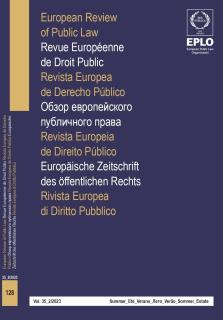
Infringement Actions and Social Change:
The Distributional Impact of the Commission’s Litigation Powers
Leticia Díez Sánchez
Assistant Professor, Maastricht University
The European Commission has a central role as “guardian of the Treaties” thanks to the infringement procedure, by which it can bring legal actions against Member States that do not comply with EU law. While the Commission’s discretion in launching infringement proceedings has long been recognised, not much attention has been given to the wider structural effects of the Commission’s infringement powers. Using direct taxation as a case study, this article maintains that infringement actions are based on value choices on the matters and actors that should be privileged when ensuring compliance with the EU legal order, and that these choices can have distributional policy consequences. As a result, more transparency may be needed for the public to understand the reasons behind the Commission’s litigation priorities, and such priorities may have to be reconsidered for the EU legal order to benefit all its subjects equally.
La Commission européenne joue un rôle central en tant que “gardienne des traités” grâce à la procédure de manquement, qui lui permet d’introduire des actions en justice contre les Etats membres qui ne respectent pas le droit de l’Union. Si le pouvoir discrétionnaire de la Commission dans le lancement des procédures de manquement est reconnu depuis longtemps, les effets structurels plus larges des pouvoirs de la Commission en la matière ont peu retenu l’attention. Utilisant la fiscalité directe comme étude de cas, cet article défend l’idée que les actions en manquement reposent sur des choix de valeurs concernant les matières et les acteurs à privilégier pour assurer le respect de l’ordre juridique de l’UE, et que ces choix peuvent avoir des conséquences en matière de politique distributive. En conséquence, une plus grande transparence serait nécessaire pour que le public comprenne les raisons qui sous-tendent les priorités de la Commission en matière de contentieux, et il se peut que ces priorités aient à être reconsidérées pour que l’ordre juridique de l’UE bénéficie à tous ses sujets de manière égale.
* This article is based on the author’s Thesis “Integration through Law and its Discontents: Unveiling the Distributive Impact of Judge-made Law in the EU”, which was awarded the Thesis Prize 2022 of the European Group of Public Law (EGPL).





















